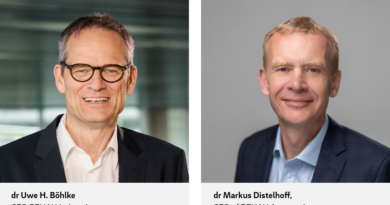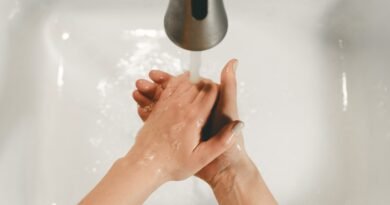A RECYCLING SHOWER CONCEPT TO ADDRESS WATER SCARCITY
The device is being developed by German manufacturer Grohe to reduce water usage by 75 per cent.
Water stress is a major and growing concern in Europe: it affects 30 per cent of the population each year on average. The situation is expected to worsen as climate change is increasing the frequency, magnitude, and impact of droughts. It is essential for almost every region of the world to reduce water waste and maximize efficiencies.
Water usage in the bathroom accounts for over two thirds of daily water use. In addition, water is the second biggest source of energy use in the home. Improved water efficiency cuts fossil fuel use, energy bills, and carbon emissions. Global bathroom and kitchen fittings brand Grohe has unveiled a new water-recycling shower concept, expanding the range of bathroom and kitchen products that promote efficient water use.

Grohe’s circular solution cleanses, reheats, and reuses water in order to use only a quarter of the water and a third of the energy typically required by traditional showers, resulting into a cost-saving of up to 65% a year for a four-person household, and up to 70% fewer CO2 emissions. Users switch to the recycling mode after washing, and the system cleans and reheats the water before sending it back through the pipes. For a 10-minute shower, the technology could reduce water use by up to 75 per cent and energy use by up to 66 per cent compared to a traditional system.
The system works in three stages:
- First, fresh water comes out of the shower when the user first turns it on.
- Once the user has finished using shampoo and soap, they press the recycling button and the water collected in the drain is pumped into a circuit where it is hygienically treated and kept at the desired temperature.
- Finally, once the user has finished the shower, the water is cleaned and prepared for the next user.
“The water stress challenge is one of the biggest issues of our time. And there’s no alternative but to address it boldly – especially if water is core to your business. We think the best way to help people save water, is by making products that they enjoy using and don’t compromise on comfort. Looking at our professional partners, we believe the construction industry will need to meet ever more stringent standards, as regulators look to increase water security, and consumers demand sustainable solutions. We will continue to invest in innovation to help our partners stay ahead of these trends and create the sustainable homes of the future.”
Jonas Brennwald, Leader for LIXIL EMENA.




